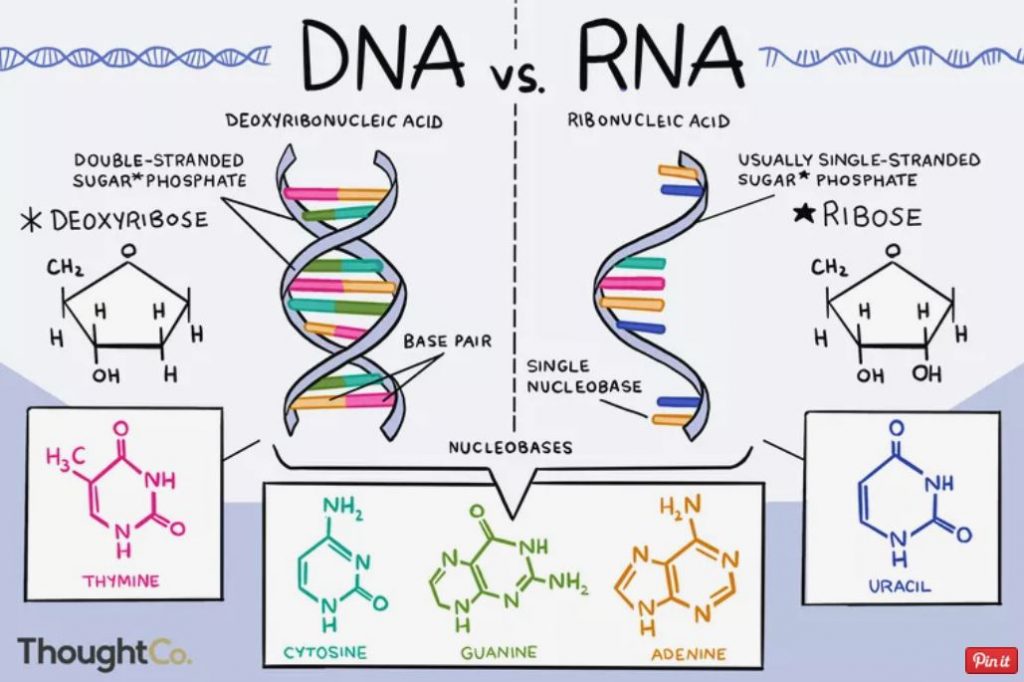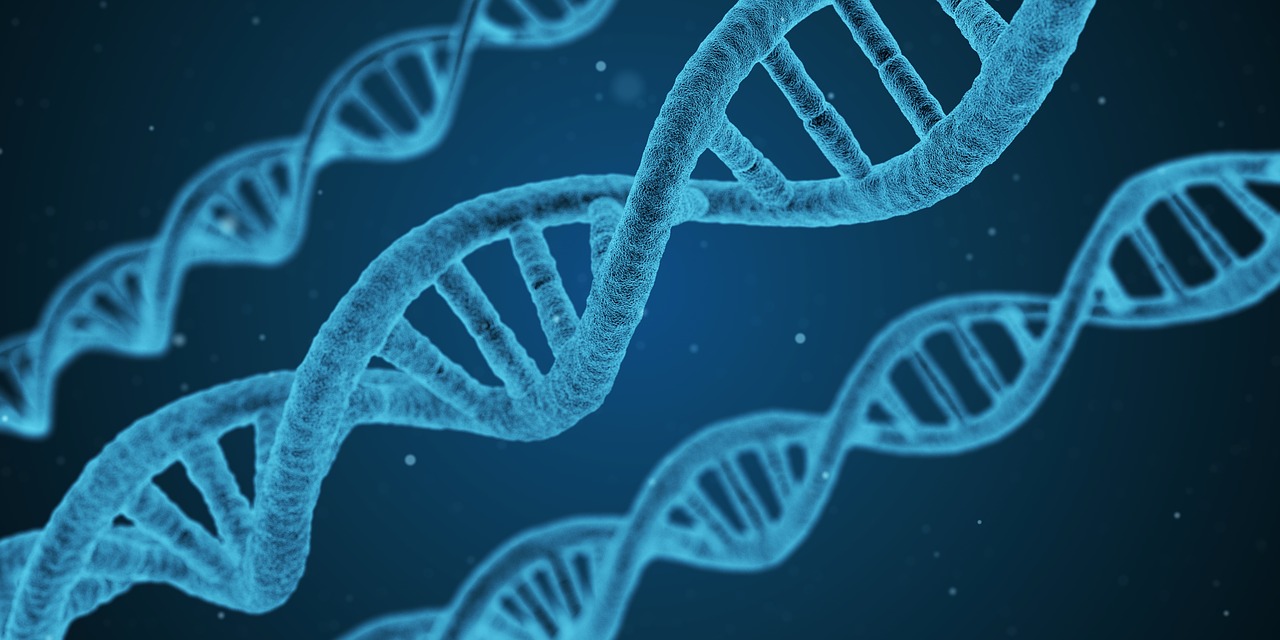Differences between DNA and RNA: South African Curriculum CAPS (Grade 12, Grade 11, Grade 10) (South Africa): DNA stands for deoxyribonucleic acid, while RNA is ribonucleic acid. Although DNA and RNA both carry genetic information, there are quite a few differences between them. This is a comparison of the differences between DNA versus RNA, including a quick summary and a detailed table of the differences.
Need Help?
[quform id="1" name="Schools Form"]Table of Contents
Summary of Differences Between DNA and RNA
- DNA contains the sugar deoxyribose, while RNA contains the sugar ribose. The only difference between ribose and deoxyribose is that ribose has one more -OH group than deoxyribose, which has -H attached to the second (2′) carbon in the ring.
- DNA is a double-stranded molecule, while RNA is a single-stranded molecule.
- DNA is stable under alkaline conditions, while RNA is not stable.
- DNA and RNA perform different functions in humans. DNA is responsible for storing and transferring genetic information, while RNA directly codes for amino acids and acts as a messenger between DNA and ribosomes to make proteins.
- DNA and RNA base pairing is slightly different since DNA uses the bases adenine, thymine, cytosine, and guanine; RNA uses adenine, uracil, cytosine, and guanine. Uracil differs from thymine in that it lacks a methyl group on its ring.

Other Grade 12 Past Papers and Memos
- Accounting Grade 12 past papers and revision notes
- Economics Grade 12 past papers and revision notes
- Mathematics Grade 12 past papers and revision notes
- Technical Mathematics Grade 12 past papers and revision notes
- Physical Science Grade 12 past papers and revision notes
- Life Sciences Grade 12 past papers and revision notes
- Technical Sciences Grade 12 past papers and revision notes
- Mathematics Literacy Grade 12 past papers and revision notes
- Biology Grade 12 past papers and revision notes
- Life Orientation Grade 12 past papers and revision notes
- Religion Studies Grade 12 past papers and revision notes
- Business Studies Grade 12 past papers and revision notes
- Consumer Studies Grade 12 past papers and revision notes
- Tshivenda Home Language Grade 12 past papers and revision notes
- IsiXhosa Home Language Grade 12 past papers and revision notes
- IsiZulu Home Language Grade 12 past papers and revision notes
- Sepedi Home Language Grade 12 past papers and revision notes
- Sesotho Home Language Grade 12 past papers and revision notes
- Setswana Home Language Grade 12 past papers and revision notes
- Seswati Home Language Grade 12 past papers and revision notes
- Afrikaans Home Language Grade 12 past papers and revision notes
- English Home Language Grade 12 past papers and revision notes
- Xitsonga Home Language Grade 12 past papers and revision notes
- Tourism and Hospitality Studies Grade 12 past papers and revision notes
- Computer Applications Technology Grade 12 past papers and revision notes
- Civil Technology Grade 12 past papers and revision notes
- Electrical Technology Grade 12 past papers and revision notes
- Engineering Graphics and Designs Grade 12 past papers and revision notes
- Information Technology Grade 12 past papers and revision notes
- Mechanical Technology Grade 12 past papers and revision notes
- Agricultural Sciences Grade 12 past papers and revision notes
- Agricultural Technology Grade 12 past papers and revision notes
- Agricultural Management Practices Grade 12 past papers and revision notes
- Dance Studies Grade 12 past papers and revision notes
- Design Grade 12 past papers and revision notes
- Dramatic Arts Grade 12 past papers and revision notes
- Music Visual Arts Grade 12 past papers and revision notes
View all Grade 12 Past Papers here
Did You See These?
- Latest Life Sciences Grade 12 2022 Term 3 September Exam Question Papers with Memorandum
- Life Sciences Grade 12 November 2021 Examination Final Question Papers with Memos to revise with
- Why is DNA replication important? CAPS (South Africa)
- List of Life Sciences essays for Grade 10, 11 and 12 (South Africa)

